Keep Your Powder Dry

Brief Synopsis
Cast & Crew
Edward Buzzell
Lana Turner
Laraine Day
Susan Peters
Agnes Moorehead
Bill Johnson
Film Details
Technical Specs

Synopsis
Informed by her attorney, Avery Lorrison, that she will not be eligible for her trust fund until she proves that she is a responsible adult, wealthy playgirl Valerie Parks decides to join the WACS to demonstrate her maturity, then resign after receiving her inheritance. Meanwhile, Ann Darrison, a devoted wife, decides to enlist when her serviceman husband John is sent overseas. At the same time Leigh Rand, the rigid daughter of a distinguished military family, also enlists to uphold the Rand family tradition. The three recruits meet on the way to the Ft. Des Moines training camp, and Val and Leigh take an instant dislike to each other. Assigned to the same barracks, Leigh proves to be a bossy know-it-all who sneers at Val's commitment to the service. Although the unassuming Ann tries to make peace between them, Leigh declares that Val will never complete basic training. Rising to Leigh's challenge, Val turns her finery in for the dull drab of the uniform, never complains and excels in class. When Val completes Basic Training, her socialite friend Harriet Corwin is shocked that she has survived early morning revelry and has even learned to wash her own clothes. Val and Leigh are displeased to discover that they have both been assigned to Motor Transport school and thus will have to continue to bear each other's company. The three women prove their mettle in Motor Transport, and Val and Leigh eventually become friends while trying to bolster Ann's self-confidence. All three are accepted into Officers' Candidate School. One day, Capt. Bill Barclay, a friend of Ann's husband, arrives at their base to ask Ann to record her voice so that he can take the disc to John when he returns overseas. After Bill asks Val on a date, Leigh, who is attracted to Bill herself, reminds them that enlisted WACS are forbidden to date officers unless they were previously acquainted. When Val decides to lie to her commanding officer by saying that she and Bill are old friends, Leigh arranges for Val to be assigned to duty that night to prevent her from getting into trouble. This infuriates Val, who then resumes her active antagonism toward Leigh. Some time later, when Val receives a telegram from Lorrison, notifying her that he is in town, she hurries to the local hotel to meet him. Instead of her attorney, however, she is met by Harriet and a very drunken Junior Vanderheusen, an old acquaintance from her former life. When Harriet and Junior become boisterous, Leigh, who is staying across the hall on a weekend pass, asks them to quiet down. Once Leigh departs, Harriet, who is living off Val's income, asks Val to sign a lease for a house in Palm Beach. After signing the document, Val tells her friends that she plans to stay in the military, and disgusted by their cavalier attitude in the face of war, chastises them. Insulted, Junior spills his drink on Val's uniform. Knowing that she cannot return to the barracks reeking of alcohol, Val goes to Leigh's room and begs her to return to camp that night to occupy her bed during inspection, then bring her a clean uniform in the morning. Leigh reluctantly agrees, but upon returning to the hotel the next morning, she encounters Junior in the elevator. When Junior blurts out that Val joined the military only to receive her inheritance, Leigh denounces her as a fraud and vows that she will never graduate from OCS. As platoon commander, Leigh soon launches a campaign of humiliation and intimidation against Val. Two days before graduation, Val, unable to stand the abuse, slaps Leigh and storms off the field. When Val refuses to defend herself to their commanding officer, Lt. Colonel Spottiswoode, the officer calls Leigh before the board and informs her that fifty percent of her platoon has rated her unfit to be an officer because she lacks humanity. Shaken, Leigh accepts the responsibility for Val's outburst. A few moments later, Col. Spottiswoode summons Anne to a private conference and regretfully informs her that her husband has been killed in combat. Putting her grief aside, Ann tries to comfort the distraught Leigh, who breaks down in tears and admits that she has always been jealous of the beautiful and competent Val. Ann agrees to help reconcile the two women, and they go to Val's hotel room. When Leigh and Val discover Ann's loss, her courage shames them, and humbled, they ask their commander for permission to remain in the corps as enlistees. Convinced of their contrition, the officer relents and allows them to graduate from OCS with Ann.

Director
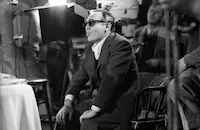
Edward Buzzell
Cast
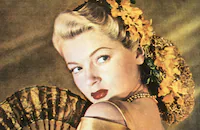
Lana Turner

Laraine Day
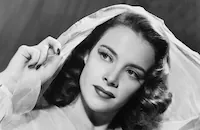
Susan Peters

Agnes Moorehead
Bill Johnson
Natalie Schafer
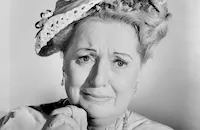
Lee Patrick
Jess Barker
June Lockhart
Marta Linden

Tim Murdock
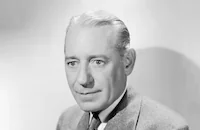
Henry O'neill
Mary Lord
Sondra Rodgers
Marjorie Davies
Rex Evans

Pierre Watkin
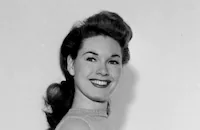
Shirley Patterson

Michael Kirby
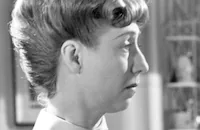
Marie Blake
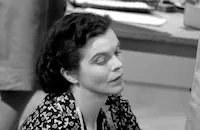
Dorothy Adams
Claire Whitney

Elizabeth Russell
Claire Rochelle

Ray Teal
Crew
Edward Baravalle
George Bruce
Mark Davis
Dale Deverman
Cedric Gibbons
A. Arnold Gillespie
Stephen Gossoon
George Haight
Horace Hough
Frank E. Hull
Charles Hunt
Ralph S. Hurst
Irene
Ray June
Marion Herwood Keyes
Standish J. Lambert
Mary C. Mccall Jr.
M. J. Mclaughlin
Warren Newcombe
Charles O'malley
Richard Rosson
Douglas Shearer
Robert W. Shirley
David Snell
Newell Sparks
William Steinkamp
Michael Steinore
Richard Stevens
Marvin Stuart
Leonid Vasian
First Lieut. Louise V. White Women's Army Corps
John A. Williams
Edwin B. Willis

Videos
Movie Clip
Trailer
Film Details
Technical Specs

Articles
Keep Your Powder Dry
The debutante and the Army professional cannot abide each other - a relationship reportedly not unlike that on the set between Turner and Day. In the movie, the conflict grows sharper after Day is promoted to cadet commander and abuses her rank to make Turner's life miserable. It takes tragedy to bring the women together and inspire their total commitment to the Corps.
Keep Your Powder Dry has been called "a fairly authentic look" at the WACs, although MGM's glossy style dictated that the women's off-duty clothing be unrealistically glamorous. In her autobiography, Lana (1982), Turner's memories of the movie center on costume designer Irene. Turner wrote that during pre-production she received a studio memo of reprimand about missing many of her wardrobe appointments - even though it was Irene who was not showing up. When the actress went to studio head Louis B. Mayer to defend herself, she was told that the memo was a face-saving device for Irene, who was an alcoholic but so valuable to MGM that the studio was willing to bear with her problems and delays. Turner wrote of Irene, "One day her sad life ended when she jumped from the window of a suite in the Knickerbocker Hotel on Hollywood Boulevard. She didn't hit the pavement but landed on the awning, dead, and they didn't find her for two days."
Co-star Susan Peters, who once commented that "Luck is the most frightening thing in the world," also had a tragic life. Shortly after filming Keep Your Powder Dry she suffered a severe spinal injury from a hunting accident caused by a shotgun that left her paralyzed from the waist down. After attempting a comeback in a wheelchair in The Sign of the Ram (1948), she died of starvation in 1952 at age 31. Peters, Oscar-nominated as Best Supporting Actress for Random Harvest (1942), became a character in a play by Richard Willett, also called Random Harvest, that was produced in New York in 2001.
Producer: George Haight
Director: Edward Buzzell
Screenplay: George Bruce, Mary C. McCall Jr.
Cinematography: Ray June
Art Direction: Cedric Gibbons, Leonid Vasian
Original Music: David Snell
Editing: Frank E. Hull
Costume Design: Irene, Marion Herwood Keyes
Principal Cast: Lana Turner (Valerie Parks), Laraine Day (Leigh Rand), Susan Peters (Ann Darrison), Agnes Moorehead (Lt. Col. Spottiswoode), Bill Johnson (Captain Bill Barclay), Natalie Schafer (Harriet Corwin), Lee Patrick (Gladys Hopkins), Jess Barker (Junior Vanderheusen), June Lockhart (Sarah Swanson).
BW-94m. Closed captioning.
by Roger Fristoe

Keep Your Powder Dry
Quotes
Trivia
Notes
The working titles of this film were The WACS, Women's Army, There Were Three of Us and Women In Uniform. An August 1944 pre-production Hollywood Reporter news item states that Richard Rosson was to shoot backgrounds at the WAC training centers in Des Moines, IA and Fort Oglethorpe, FL. Although a Hollywood Reporter production chart credits Stephen Gossoon with art direction, the extent of his contribution to the released film has not been determined. the extent of his contribution the the released film has not been determined. A September 1944 Hollywood Reporter news item adds that Sgt. Art Moore of the U.S. Army Signal Corps Photographic Unit was to instruct 50 dancing girls in drill scenes. According to a August 5, 1944, the cast was initially to be all females. By August 29, 1944, Robert Sully was announced as the only male actor in the cast, but he was not in the film. Although a Hollywood Reporter production chart places Charles Trowbridge in the cast, he does not appear in the film.
Modern sources state that the film premiered in Washington, D.C. on March 8, 1945 as part of the WAC recruiting campaign. Various Hollywood Reporter news items include Edith Leach, Jean Ashton, Judi Blacque, Kathleen Cartmill, Marilyn Christine, Rita Dunn, Meredith Durrell, Jeanne Francis, Stanley Andrews, Mimi Doyle, Mary Parker, Geraldine Wall, Jean French, Barbara Hallstone, Doreen Hayward, Charlotte Hunter, Virginia Hunter, Margaret Kays, Dianne Meredeth, Frances Morris, Jetsy Parker, Jane Ray, Beth Renner, Melba Snowden, Wanda Stevenson, Bobbie Woods, Ruth Lee, Clyde Fillmore, Gloria Hope, Ann Hunter, Mary Currier, Early Cantrell, Nita Pike, Anne Loos, Roberta Ridley, Barbara Sears, January Gilbreath, Jesse Graves, Eula Guy and Ruth Warren in the cast, but their appearance in the released film has not been confirmed.
















